It is a good idea to have small well understood datasets when getting started in machine learning and learning a new tool.
The Weka machine learning workbench provides a directory of small well understood datasets in the installed directory.
In this post you will discover some of these small well understood datasets distributed with Weka, their details and where to learn more about them.
We will focus on a handful of datasets of differing types. After reading this post you will know:
- Where the sample datasets are located or where to download them afresh if you need them.
- Specific standard datasets you can use to explore different aspects of classification and regression predictive models.
- Where to go for more information about specific datasets and state of the art results.
Kick-start your project with my new book Machine Learning Mastery With Weka, including step-by-step tutorials and clear screenshots for all examples.
Let’s get started.

Standard Machine Learning Datasets Used For Practice in Weka
Photo by Marvin Foushee, some rights reserved.
Standard Weka Datasets
An installation of the open source Weka machine learning workbench includes a data/ directory full of standard machine learning problems.
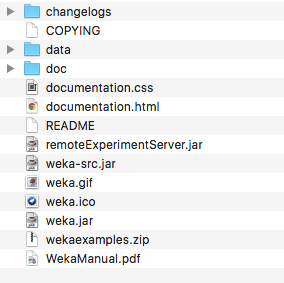
Weka Installation Directory
This is very useful when you are getting started in machine learning or learning how to get started with the Weka platform. It provides standard machine learning datasets for common classification and regression problems, for example, below is a snapshot from this directory:
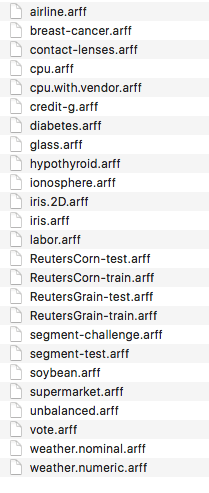
Provided Datasets in Weka Installation Directory
All datasets are in the Weka native ARFF file format and can be loaded directly into Weka, meaning you can start developing practice models immediately.
There are some special distributions of Weka that may not include the data/ directory. If you have chosen to install one of these distributions, you can download the .zip distribution of Weka, unzip it and copy the data/ directory to somewhere that you can access it easily from weka.
There are many datasets to play with in the data/ directory, in the following sections I will point out a few that you can focus on for practicing and investigating predictive modeling problems.
Need more help with Weka for Machine Learning?
Take my free 14-day email course and discover how to use the platform step-by-step.
Click to sign-up and also get a free PDF Ebook version of the course.
Binary Classification Datasets
Binary classification is where the output variable to be predicted is nominal comprised of two classes.
This is perhaps the most well studied type of predictive modeling problem and the type of problem that is good to start with.
There are three standard binary classification problems in the data/ directory that you can focus on:
- Pima Indians Onset of Diabetes: (diabetes.arff) Each instance represents medical details for one patient and the task is to predict whether the patient will have an onset of diabetes within the next five years. There are 8 numerical input variables all of which have varying scales. You can learn more about this dataset. Top results are in the order of 77% accuracy.
- Breast Cancer: (breast-cancer.arff) Each instance represents medical details of patients and samples of their tumor tissue and the task is to predict whether or not the patient has breast cancer. There are 9 input variables all of which a nominal. You can learn more about the datasets in the UCI Machine Learning Repository. Top results are in the order of 75% accuracy.
- Ionosphere (ionosphere.arff) Each instance describes the properties of radar returns from the atmosphere and the task is to predict whether or not there is structure in the ionosphere. There are 34 numerical input variables of generally the same scale. You can learn more about this dataset on the UCI Machine Learning Repository. Top results are in the order of 98% accuracy.
Multi-Class Classification Datasets
There are many classification type problems, where the output variable has more than two classes. These are called multi-class classification problems.
This is a good type of problem to look at after you have some confidence with binary classification.
Three standard multi-class classification problems in the data/ directory that you can focus on are:
- Iris Flowers Classification: (iris.arff) Each instance describes measurements of iris flowers and the task is to predict to which species of 3 iris flower the observation belongs. There are 4 numerical input variables with the same units and generally the same scale. You can learn more about the datasets in the UCI Machine Learning Repository. Top results are in the order of 96% accuracy.
- Large Soybean Database: (soybean.arff) Each instance describes properties of a crop of soybeans and the task is to predict which of the 19 diseases the crop suffers. There are 35 nominal input variables. You can learn more about this dataset on the UCI Machine Learning Repository.
- Glass Identification: (glass.arff) Each instance describes the chemical composition of samples of glass and the task is to predict the type or use of the class from one of 7 classes. There are 10 numeric attributes that describe the chemical properties of the glass ad its refractive index. You can learn more about this dataset on the UCI Machine Learning Repository.
Regression Datasets
Regression problems are those where you must predict a real valued output.
The selection of regression problems in the data/ directory is small. Regression is an important class of predictive modeling problem. As such I recommend downloading the free add-on pack of regression problems collected from the UCI Machine Learning Repository.
It is available from the datasets page on the Weka web page and is the first in the list called:
- A jar file containing 37 regression problems, obtained from various sources (datasets-numeric.jar)
It is a .jar file which is a type of compressed Java archive. You should be able to unzip it with most modern unzip programs.
If you have Java installed (which you very likely do to use Weka), you can also unzip the .jar file manually on the command line using the following command in the directory where the jar was downloaded:
|
1 |
jar -xvf datasets-numeric.jar |
Unzipping the file will create a new directory called numeric that contains 37 regression datasets in ARFF native Weka format.
Three regression datasets in the numeric/ directory that you can focus on are:
- Longley Economic Dataset: (longley.arff) Each instance describes the gross economic properties of a nation for a given year and the task is to predict the number of people employed as an integer. There are 6 numeric input variables of varying scales.
- Boston House Price Dataset: (housing.arff) Each instance describes the properties of a Boston suburb and the task is to predict the house prices in thousands of dollars. There are 13 numerical input variables with varying scales describing the properties of suburbs. You can learn more about this dataset on the UCI Machine Learning Repository.
- Sleep in Mammals Dataset: (sleep.arff) Each instance describes the properties of different mammals and the task is to predict the number of hours of total sleep they require on average. There are 7 numeric input variables of different scales and measures.
Summary
In this post you discovered the standard machine learning datasets distributed with the Weka machine learning platform.
Specifically, you learned:
- Three popular binary classification problems you can use for practice: diabetes, breast-cancer and ionosphere.
- Three popular multi-class classification problems you can use for practice: iris, soybean and glass.
- Three popular regression problems you can use for practice: longley, housing and sleep.
Do you have any questions about standard machine learning datasets in Weka or about this post? Ask your questions in the comments and I will do my best to answer.

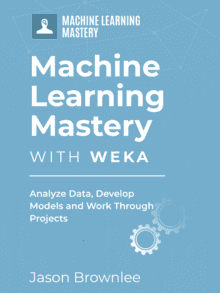

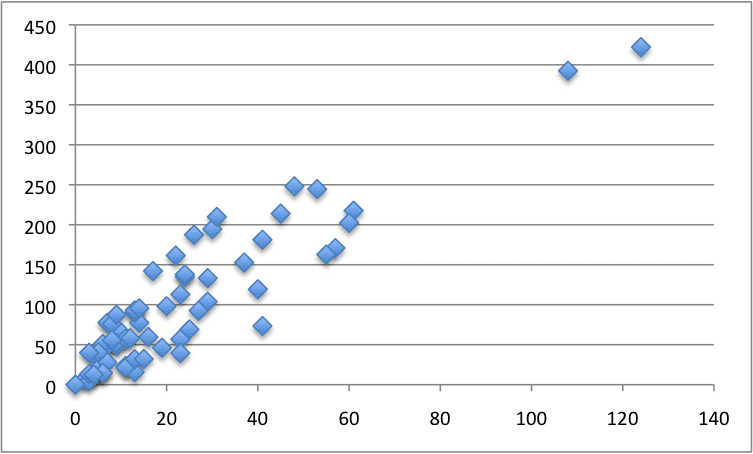


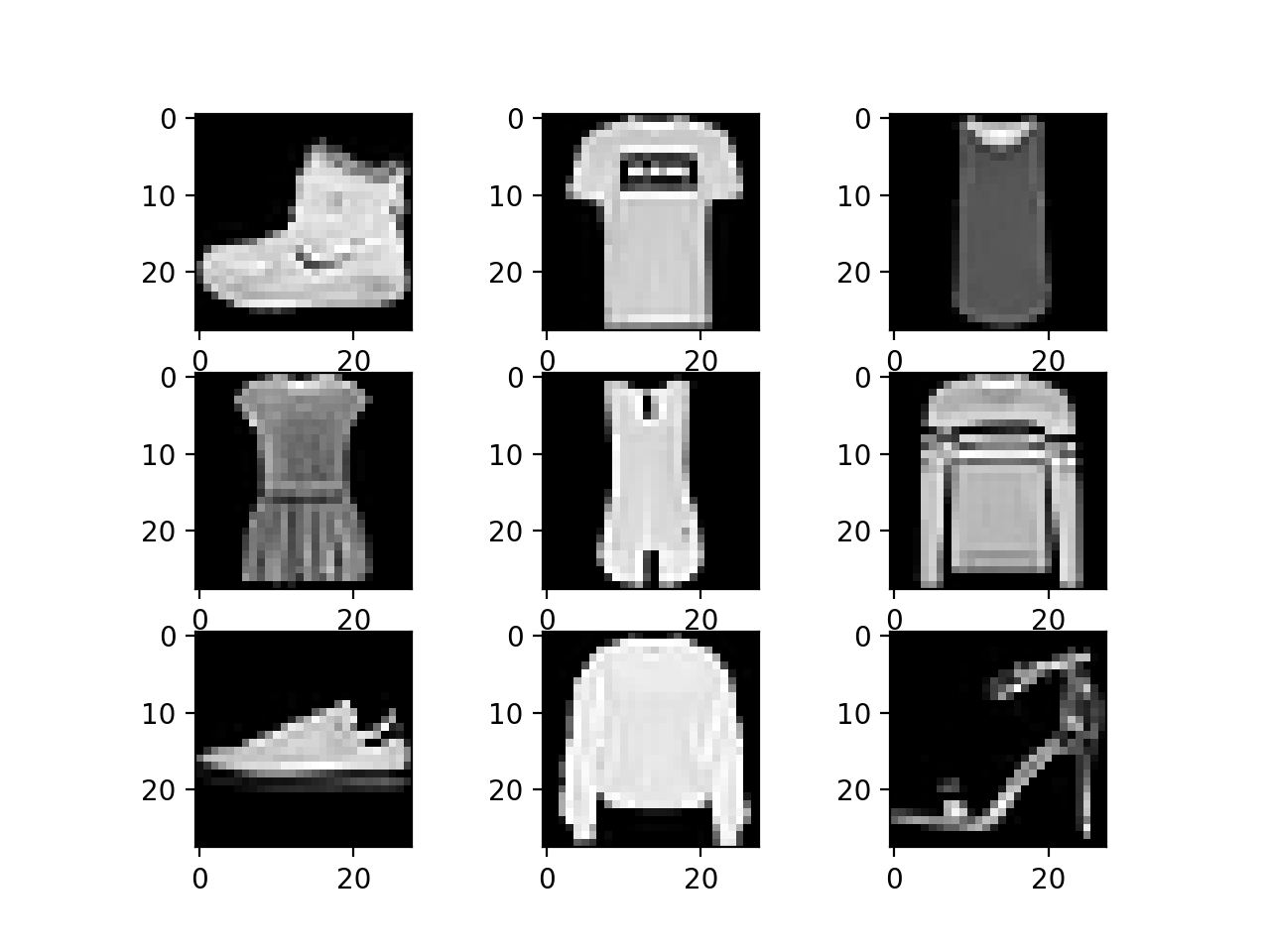

sir i want to upload proteins dataset in weka. help me in this regard
Sorry, I don’t have an example of loading a protein dataset in Weka.
Perhaps this post will help to get you started:
https://machinelearningmastery.com/load-csv-machine-learning-data-weka/
Dear Dr. Jason Brownlee.
In the binary classification datasets, you talk about the data set of diabetes, where the task is to predict whether the patient will have an onset of diabetes within the next five years. Would you recomend me another dataset for diabetes where the task is as clear as this.
The problem is that I have checked the UCI Machine Learning Repository where there are other diabetes datasets. But I am having trouble in what outcome to look for. Whereas in this data set included in Weka the aim is clear. Moreover, I am able to open some of those datasets in format CVS but for some reason Weka does not allow me to apply any Classifier-Rule, all of them are disabled.
Thank you,
Sorry, I don’t know any other diabetes datasets off the top of my head.
It is a pity to hear that Jason Brownlee. Yet, I thank you for your reply.
sir, can you help me with datasets on students attitudes towards the use of university smartcard? or generally, attitudes on smartcard usage
Perhaps collect the data directly?